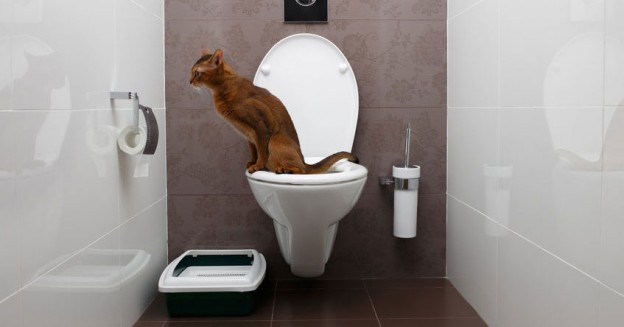Prevent Plumbing Problems: Never Flush Cat Poop Down Your Toilet - Professional Advice
Prevent Plumbing Problems: Never Flush Cat Poop Down Your Toilet - Professional Advice
Blog Article
The publisher is making a few good observations on How to Dispose of Cat Poop and Litter Without Plastic Bags overall in the article followed below.

Intro
As feline owners, it's necessary to bear in mind exactly how we take care of our feline friends' waste. While it may seem practical to flush cat poop down the commode, this technique can have detrimental consequences for both the environment and human health.
Environmental Impact
Purging cat poop presents harmful virus and parasites into the water, positioning a substantial danger to water communities. These impurities can adversely impact aquatic life and compromise water high quality.
Wellness Risks
Along with ecological worries, purging cat waste can also position health and wellness dangers to human beings. Feline feces may have Toxoplasma gondii, a bloodsucker that can cause toxoplasmosis-- a possibly serious disease, especially for expecting females and people with weakened body immune systems.
Alternatives to Flushing
The good news is, there are much safer and more accountable ways to throw away pet cat poop. Take into consideration the following alternatives:
1. Scoop and Dispose in Trash
The most typical technique of getting rid of feline poop is to scoop it into a naturally degradable bag and toss it in the garbage. Make sure to use a devoted litter inside story and deal with the waste quickly.
2. Use Biodegradable Litter
Choose eco-friendly pet cat litter made from products such as corn or wheat. These litters are environmentally friendly and can be securely taken care of in the trash.
3. Bury in the Yard
If you have a lawn, take into consideration burying feline waste in a marked location away from vegetable yards and water resources. Make sure to dig deep enough to stop contamination of groundwater.
4. Set Up a Pet Waste Disposal System
Purchase a pet dog waste disposal system especially designed for pet cat waste. These systems use enzymes to break down the waste, decreasing odor and ecological impact.
Verdict
Liable animal ownership extends past offering food and shelter-- it also includes correct waste monitoring. By refraining from flushing pet cat poop down the toilet and selecting alternative disposal techniques, we can minimize our environmental impact and protect human health and wellness.
Why You Should Never Flush Cat Poop Down the Toilet
A rose by any other name might smell as sweet, but not all poop is created equal. Toilets, and our sewage systems, are designed for human excrement, not animal waste. It might seem like it couldn’t hurt to toss cat feces into the loo, but it’s not a good idea to flush cat poop in the toilet.
First and foremost, assuming your cat uses a litter box, any waste is going to have litter on it. And even the smallest amount of litter can wreak havoc on plumbing.
Over time, small amounts build up, filling up your septic system. Most litter sold today is clumping; it is made from a type of clay that hardens when it gets wet. Ever tried to scrape old clumps from the bottom of a litter box? You know just how cement-hard it can get!
Now imagine just a small clump of that stuck in your pipes. A simple de-clogger like Drano isn’t going to cut it. And that means it’s going to cost you big time to fix it.
Parasitic Contamination
Believe it or not, your healthy kitty may be harboring a nasty parasite. Only cats excrete Toxoplasma in their feces. Yet it rarely causes serious health issues in the cats that are infected. Most people will be fine too if infected. Only pregnant women and people with compromised immune systems are at risk. (If you’ve ever heard how women who are expecting are excused from litter cleaning duty, Toxoplasma is why.)
But other animals may have a problem if infected with the parasite. And human water treatment systems aren’t designed to handle it. As a result, the systems don’t remove the parasite before discharging wastewater into local waterways. Fish, shellfish, and other marine life — otters in particular — are susceptible to toxoplasma. If exposed, most will end up with brain damage and many will die.
Depending on the species of fish, they may end up on someone’s fish hook and, ultimately on someone’s dinner plate. If that someone has a chronic illness, they’re at risk.
Skip the Toilet Training
We know there are folks out there who like to toilet train their cats. And we give them props, it takes a lot of work. But thanks to the toxoplasma, it’s not a good idea.

I came across that blog entry on Can You Flush Cat Poo or Litter Down the Toilet? while perusing the internet. Sharing is nice. You won't know, you might be doing someone a favor. Kudos for your time. Please pay a visit to our website back soon.
Click Here Report this page